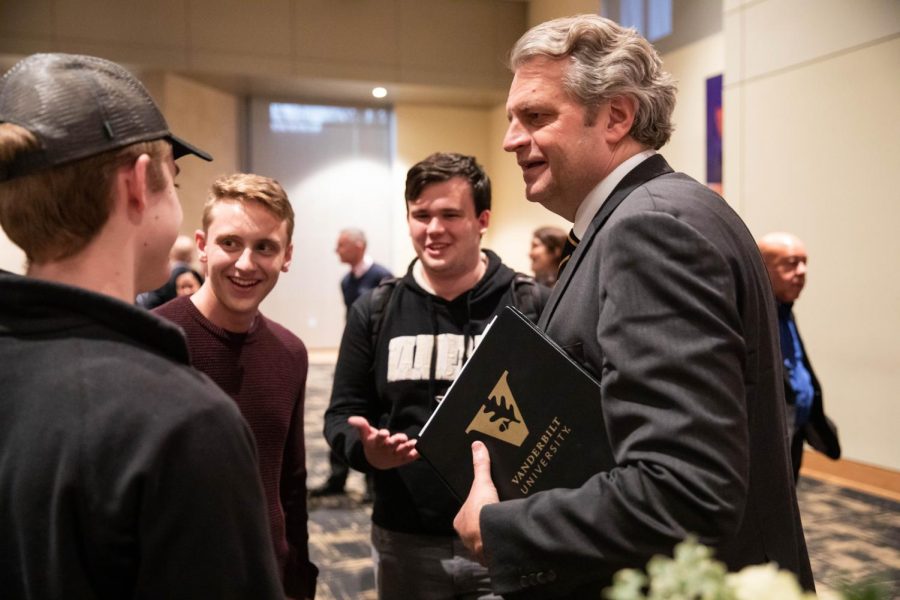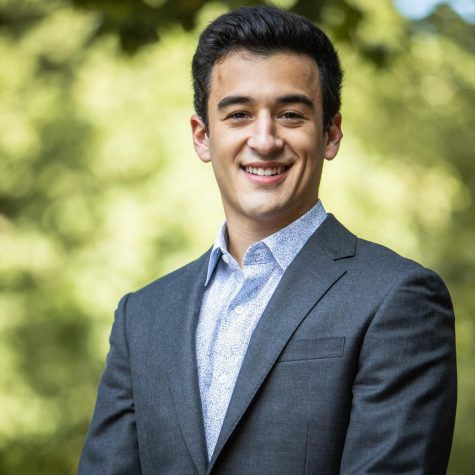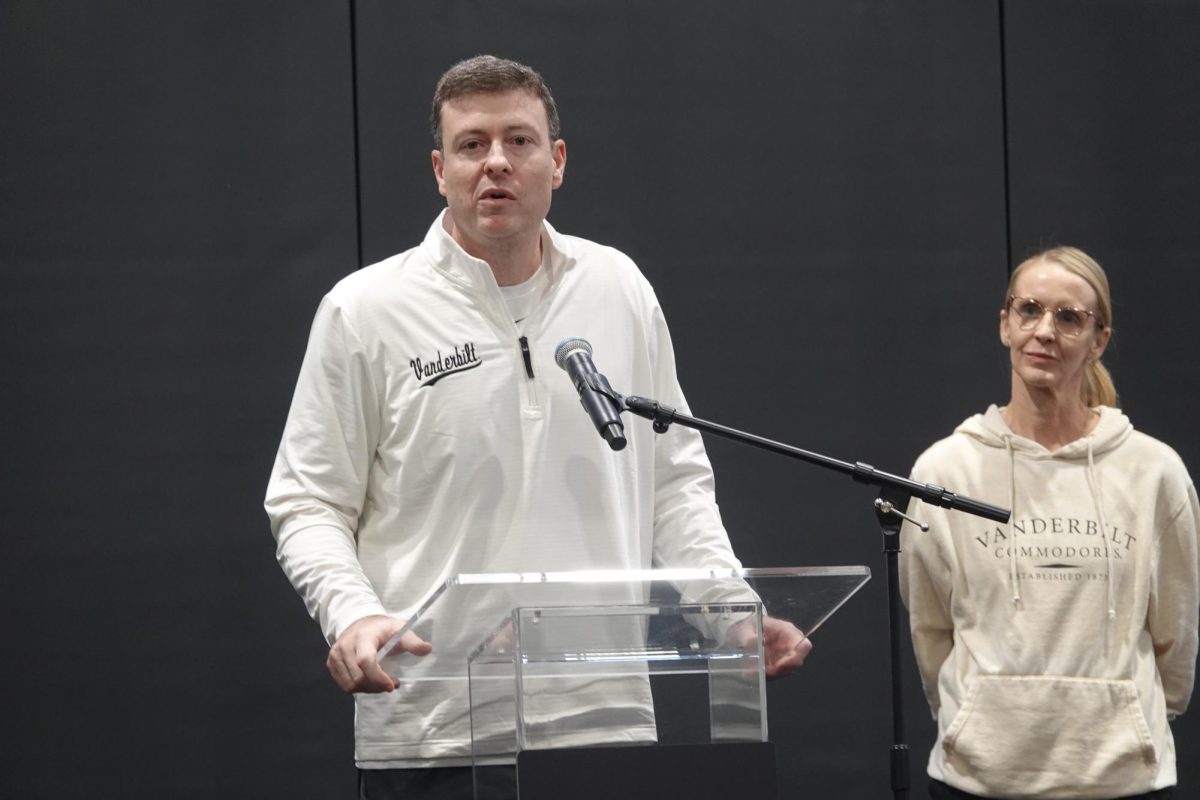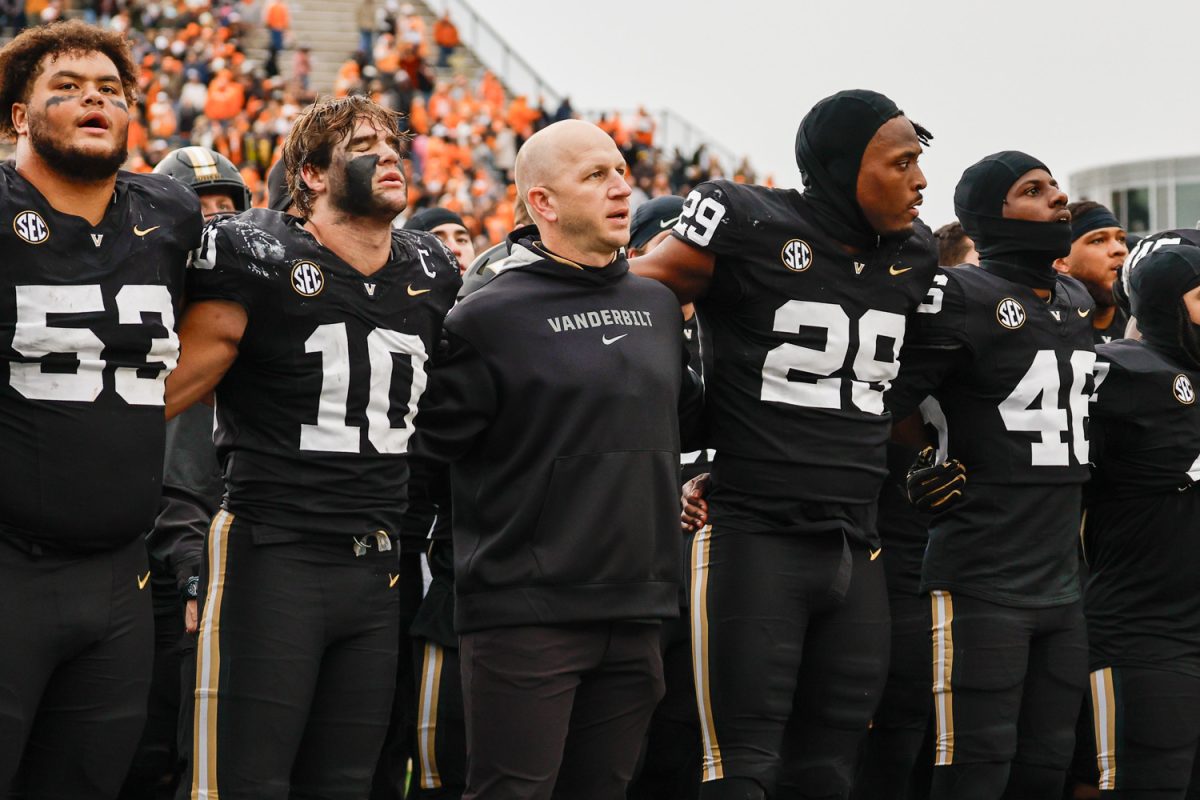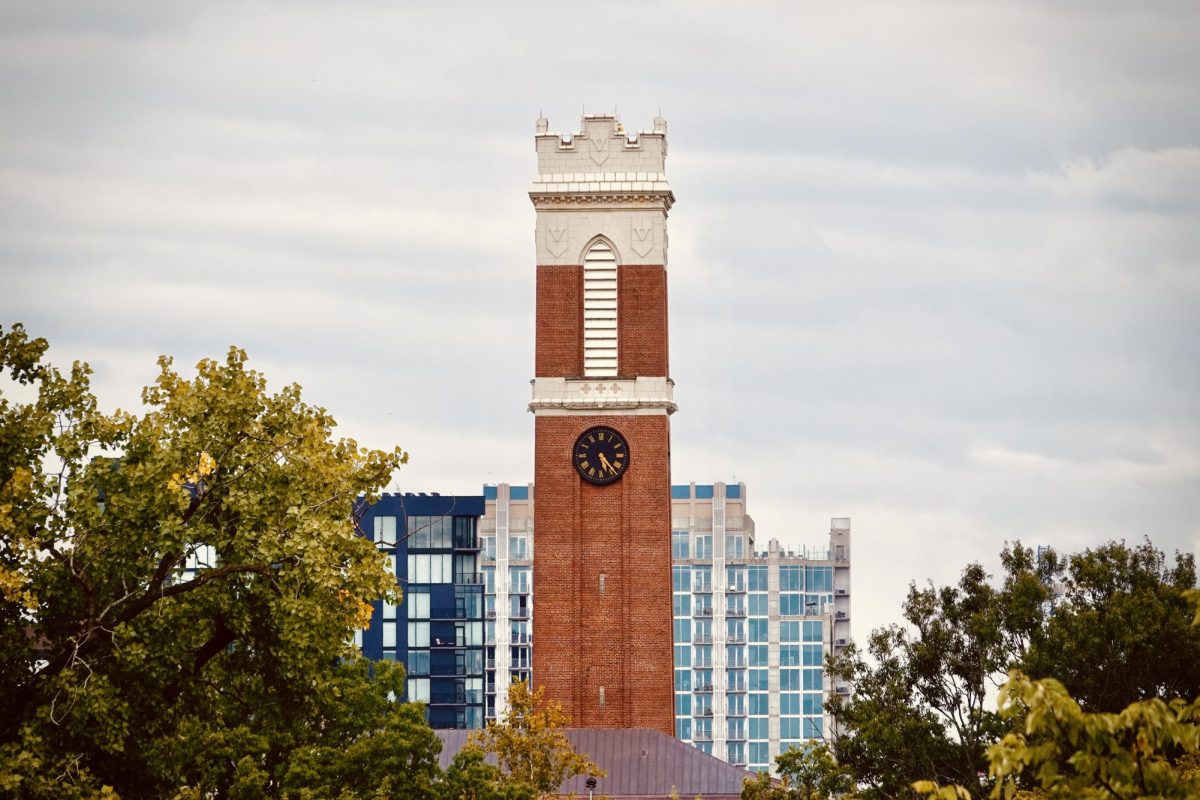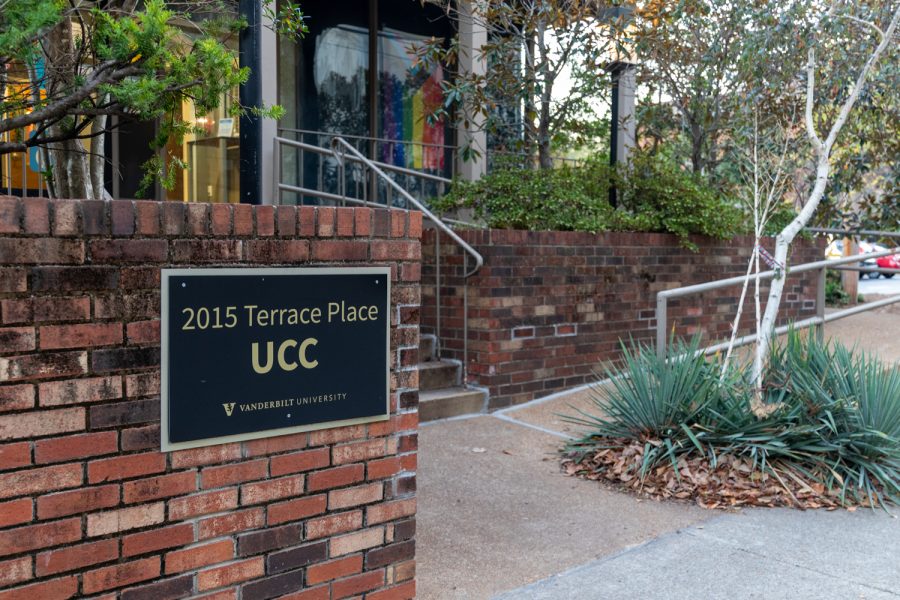Vanderbilt Chancellor Daniel Diermeier on Aug. 31 joined The Commodore Hour with Joe Fisher, a radio show on ESPN 102.5 The Game, to discuss his experiences with sports and his vision for Vanderbilt athletics.
Diermeier, Vanderbilt’s ninth chancellor, has not yet publicly addressed the state of Vanderbilt athletics since he assumed office in July of 2020.
“Many years ago, when I first came to this country, I literally arrived at LAX airport in Los Angeles with two suitcases and $1000. I’d never been to the United States or any English-speaking country before,” Diermeier said on Monday. “Athletics was a way for me to become very familiar with American culture in a deep way because, of course, athletics and sports are such an important part of American life.”
Diermeier, a native of Berlin, Germany, first arrived in the United States to study at the University of Southern California. He said he had been a sports fan his whole life, with one of his fondest athletics memories coming in Germany’s 2-1 win over the Netherlands in the 1974 World Cup Finals.
As a student at USC, Diermeier said he saw the importance of keeping up with American sports.
“I truly embraced the athletic culture and sports at USC, but more broadly speaking, [all American] sports,” he said. “I watched a lot of games just to improve my English and be able to understand spoken English in a more casual way.”
Diermeier recalled the first professional baseball game he ever watched on television: Game One of the 1988 World Series, where the Los Angeles Dodgers took on the Oakland Athletics. He keenly remembers the heroics of Dodgers’ outfielder Kirk Gibson, who was originally held out of the game with injuries to his left hamstring and right knee but was brought into the game to pinch hit in the bottom of the ninth with two outs.
Gibson launched a walk-off home run.
“He hit the two-run home run there but almost couldn’t run the bases because he was hobbling,” Diermeier said. “And I thought, ‘well that’s pretty cool. That’s interesting, I like that.’”
Fisher proceeded to ask Diermeier about Vanderbilt athletics, starting with his decision to remove the interim tag from Candice Storey Lee’s position as the university’s athletic director.
“I wanted to very quickly get a sense of athletics. I talked to all the coaches, that was one of the things I did right away,” he said, recalling two observations: “Of course, you have tremendously strong programs here. Tim Corbin and what he has done to baseball is amazing. And you can see the culture that he has created in this area. The second thing that I saw was a tremendous respect that Candice had with the coaches. And then I spent a lot of time with her on my own, and I could see that she’s the right person.”
Diermeier said he thought Lee was the right person for the job because of her background as a student-athlete, her three Vanderbilt degrees and a perspective that “very deeply aligns” with the way he sees college athletics.
“[College athletics] are not some kind of separate entity, but it is deeply connected to the university. That’s how I want to think about it. I’m thinking about athletics not as some kind of separate thing across the road, but athletics is one way in which we foster and realize our mission to advance human potential,” he said. “To me, having athletics programs is not different from having a law school. I want the dean of the law school to be a close part of how we think about the university, and I want our athletic director to be close to the university.”
Fisher then asked Diermeier about impending athletics renovations, and whether the COVID-19 pandemic has delayed or limited the process of renovating facilities.
“The first thing I should say is that we had a strategic plan that was launched before I arrived. I think that’s going to guide some of the things that we’re going to be doing,” Diermeier said. “But the opportunity when a new chancellor comes in, and you have a new athletic director, is to rethink things. That’s what we’re doing now. We’re looking at every aspect of how we think about athletics.”
Diermeier noted challenges that arise from the process of “rethinking” athletics, such as the decision to return to play amid the COVID-19 pandemic.
Vanderbilt’s athletics facilities continue to linger behind its SEC counterparts, for which the school has received criticism. Fisher concluded by asking Diermeier what his response to those critics would be.
“I am new to this, but I have heard this too. I’m not going to talk about the past and what was there. We’re fully committed to athletics. As I said before, a successful athletics program is an enormous asset to a university. This is a great university. We need to have a great athletics program. That’s that,” he said. “Athletics is one way in which the community connects with the university. So I think we need to be mindful of that, and we need to think about how we enhance it, how do we do more of that, how do we invite the community to participate in athletic events and how do we just improve the relationship between Nashville overall and Vanderbilt, particularly on the athletics side.”


